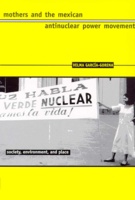The University of Arizona Press is the premier publisher of academic, regional, and literary works in the state of Arizona. They disseminate ideas and knowledge of lasting value that enrich understanding, inspire curiosity, and enlighten readers. They advance the University of Arizona’s mission by connecting scholarship and creative expression to readers worldwide.
In a Desert Garden
Love and Death among the Insects
Speaking Chicana
Voice, Power, and Identity
Sedentism and Mobility in a Social Landscape
Mesa Verde and Beyond
Under the Devil's Thumb
David Gessner first moved to Colorado in the wake of a bout with cancer. In Under the Devil's Thumb, this young New Englander takes readers on a joyous quest to discover the mysteries of the western landscape and the landscape of the soul as well.
In the West Gessner began to rewrite his life. Under the Devil's Thumb is a story of rugged determination and sweat, as well as humor, adventure and hope. In and around his new hometown of Boulder, Colorado, Gessner hiked hard and ran alongside flooded creeks. He found that the West was a place of storiesstories that grow out of the ground, flow out of the dirt, work their way through one's limbs, and drive people to push their physical limits.
Hiking up scree slopes toward the Devil's Thumb, a massive outcrop of orange rock that attracts climbers, hikers, and contemplaters, Gessner reflects on the illness he has so recently survived. He pushes his physical limits, hoping to outrun death, to outrun dread. He finds momentary transcendence in the joys and self-inflicted pain of mountain biking. "Nothing but the hardest ride has the power to flush out worry, mind clutter, and dread." In tranquil moments he seeks a chance to recover an animal self that is strong and powerful enough to conquer mountains, but also still and quiet enough to see things human beings ignore.
In the mountain West, Gessner finds what Wallace Stegner called "the geography of hope." He finds within himself an interior landscape that is healthy and strong. Combining memoir, nature writing, and travel writing, Under the Devil's Thumb is one man's journey deep into a place of healing.
New Latina Narrative
The Feminine Space of Postmodern Ethnicity
Mimbres during the Twelfth Century
Abandonment, Continuity, and Reorganization
Border-Crosser with a Lamborghini Dream
Tohono O'odham/Pima to English, English to Tohono O'odham/Pima Dictionary
The Sierra Pinacate
The Emperor's Mirror
Understanding Cultures through Primary Sources
Expanding the View of Hohokam Platform Mounds
An Ethnographic Perspective
Gentry's Rio Mayo Plants
The Tropical Deciduous Forest and Environs of Northwest Mexico
The New Western History
The Territory Ahead
Nobody's Son
Here's a story about a family that comes from Tijuana and settles into the 'hood, hoping for the American Dream.
. . . I'm not saying it's our story. I'm not saying it isn't. It might be yours. "How do you tell a story that cannot be told?" writes Luis Alberto Urrea in this potent memoir of a childhood divided. Born in Tijuana to a Mexican father and an Anglo mother from Staten Island, Urrea moved to San Diego when he was three. His childhood was a mix of opposites, a clash of cultures and languages. In prose that seethes with energy and crackles with dark humor, Urrea tells a story that is both troubling and wildly entertaining.
Urrea endured violence and fear in the black and Mexican barrio of his youth. But the true battlefield was inside his home, where his parents waged daily war over their son's ethnicity. "You are not a Mexican!" his mother once screamed at him. "Why can't you be called Louis instead of Luis?" He suffers disease and abuse and he learns brutal lessons about machismo. But there are gentler moments as well: a simple interlude with his father, sitting on the back of a bakery truck; witnessing the ultimate gesture of tenderness between the godparents who taught him the magical power of love.
"I am nobody's son. I am everybody's brother," writes Urrea. His story is unique, but it is not unlike thousands of other stories being played out across the United States, stories of other Americans who have waged warboth in the political arena and in their own homesto claim their own personal and cultural identity. It is a story of what it means to belong to a nation that is sometimes painfully multicultural, where even the language both separates and unites us. Brutally honest and deeply moving, Nobody's Son is a testament to the borders that divide us all.
Cultural Memory and Biodiversity
Interweaving a wealth of ecological and cognitive data with oral history, Nazarea details a "memory banking" protocol for collecting and conserving cultural information to complement the genetic, agronomic, and biochemical characterization of important crops.



















































